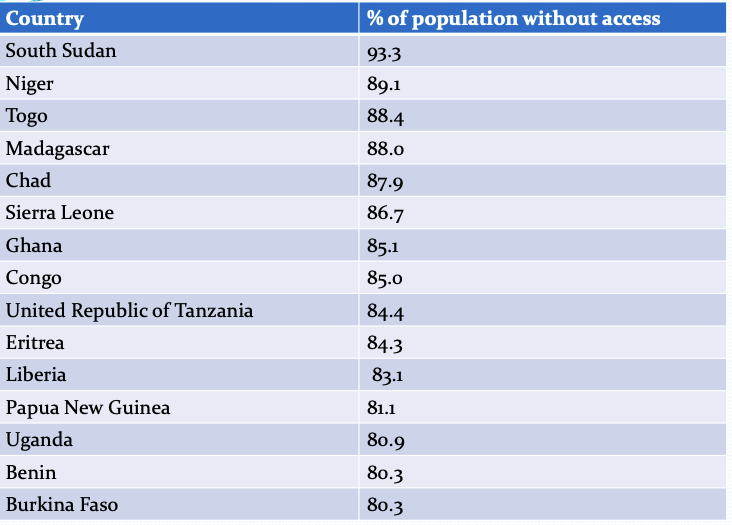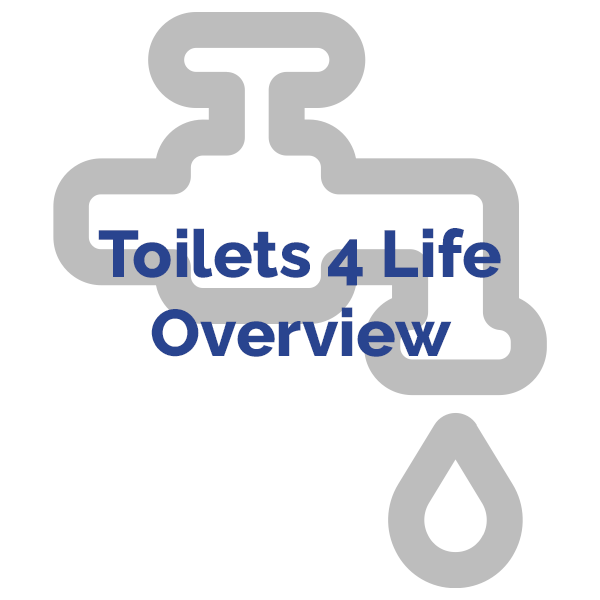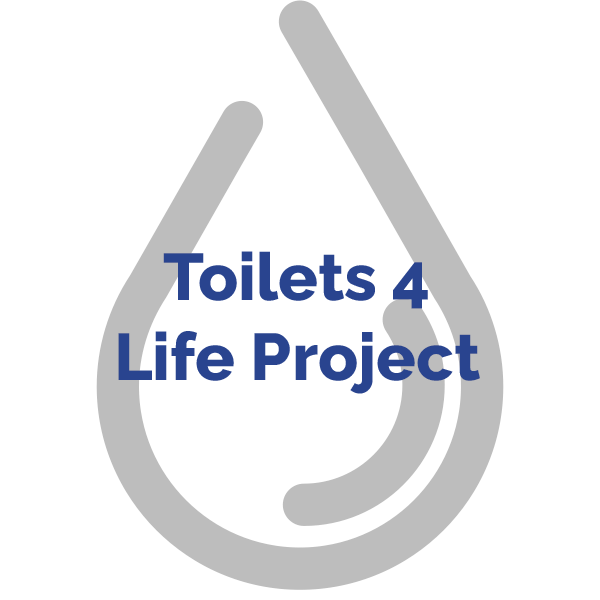T4Life – Implications of Poor Sanitation
In developed nations we take flushing toilets and turning on the tap to get water for granted. But the biggest problem facing the world today remains a lack of access to water and sanitation:
- Over 650 million people have no access to clean water
- Over 2.3 billion don’t have access to a safe private toilet
- Diarrhea is in the top 3 contributors to death in children globally
- Unsafe sanitation is responsible for 775,000 deaths each year
- Poor sanitation are also contributors to pneumonia and malaria
- In low income countries, poor sanitation accounts for 5% of deaths
 So what do people without access to modern toilets and sanitation do? They are forced defecate in the open, bushes, buckets, plastic bags, unfinished buildings, rivers and water sources, and in rudimentary pit latrines which leak their contents into the surrounding environment.
So what do people without access to modern toilets and sanitation do? They are forced defecate in the open, bushes, buckets, plastic bags, unfinished buildings, rivers and water sources, and in rudimentary pit latrines which leak their contents into the surrounding environment.
Since one gram of feces carries 1-10 million bacteria, this is a one way street to illness. The implications to health are profound.
Implications to Maternal Health
- Every day, 800 women die during pregnancy and childbirth
- 99% are in developing countries, and more than 10% are caused by sepsis
- Yet results of a WHO survey of low and middle-income countries showed :
- 38% of health-care facilities do not have even basic access to water,
- 19% do not have basic sanitation
- 35% do not have water and soap for hand washing
Implications to Children’s Health
Poor sanitation often leads to stunting, or impaired growth and development, in children. Stunting can lead to poor cognition and educational performance, low adult wages, lost productivity, and an increased risk of chronic diseases in adult life. Stunting is more common in places with high rates of open defecation because fecal matter contaminates the food, water and general environment. This makes children frequently ill and can permanently damage children’s intestines and their ability to absorb nutrients.
Implications to Gender Equality
- Lack of access to sanitation and clean water is correlated with greater gender inequality
- Can to lead to harassment or assault
- Lack of dignity to women when they do not have a safe, private place to manage menstrual hygiene.
Implications to Education
- Children who are frequently sick because of infection fall behind and are more likely to dropout.
- UNICEF found that on average in low income countries, only 46% of schools have toilets for their students
- Girls may stay home during menstruation leading them to fall behind or stop attending entirely
Economic Development
-
Hospital costs & sickness holds back a country’s workforce and its economic development
- Annual global economic losses estimated to be US$260 billion. This is nearly double the net overseas development aid – $135.2 billion – given by donor nations in 2014.
- Keeping communities healthy increases productivity and opportunity.
- Investing in water and sanitation systems has tremendous economic rewards – at least $6 return on every $1 spent on eliminating open defecation, and $3 for every $1 spent on sanitation




